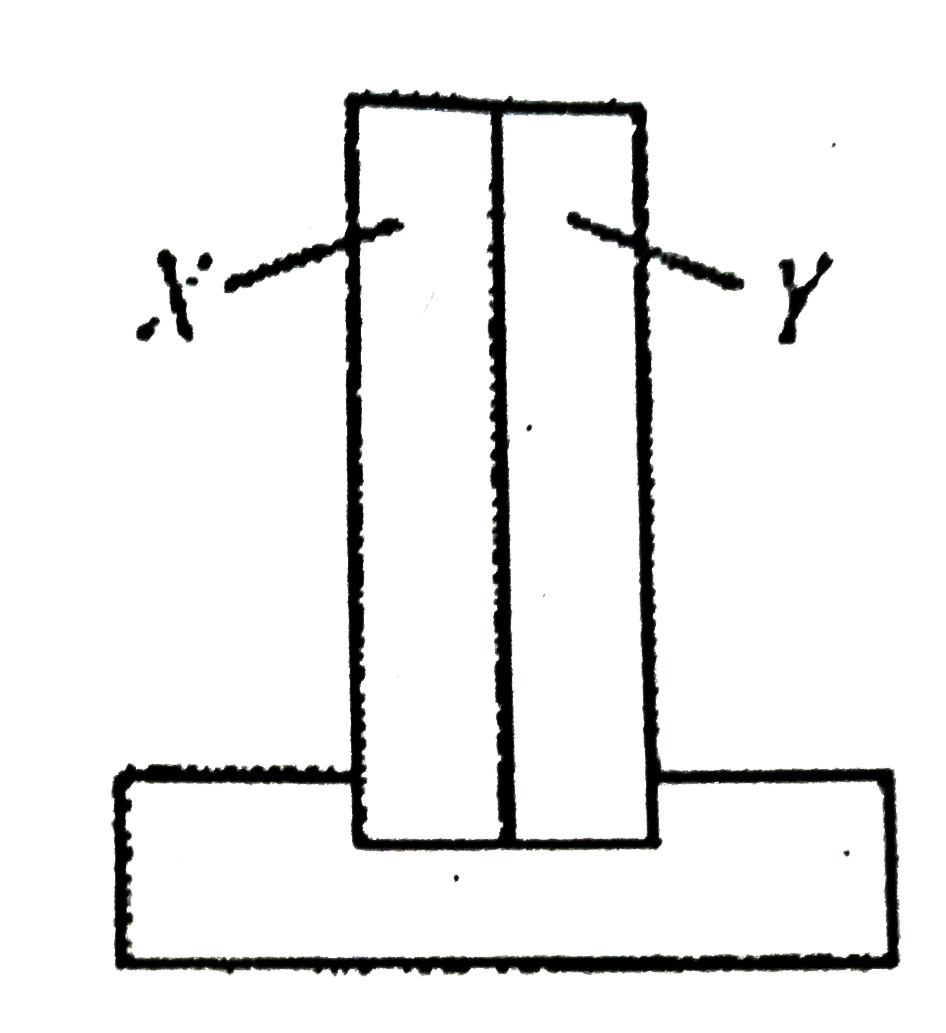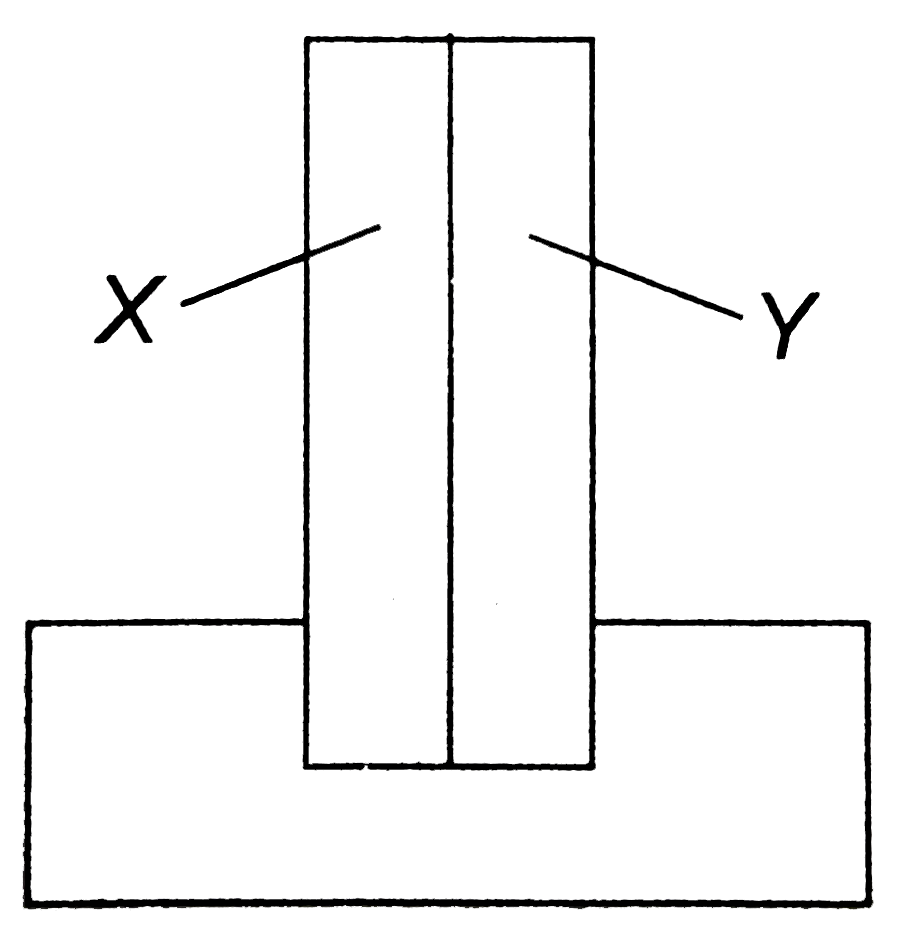A bimetallic strip consists of metals X and Y. It mounted rigidly at the base as shown. The metal X has a higher coefficient of expansion compared to that for metal Y. When the bimetallic strip is placed in a cold bath

it will bend towards the right
it will bend towards the left
it will not bend but shrink
it will neither bend nor shrink
The correct Answer is:B
Step by step video & image solution for A bimetallic strip consists of metals X and Y. It mounted rigidly at the base as shown. The metal X has a higher coefficient of expansion compared to that for metal Y. When the bimetallic strip is placed in a cold bath by Physics experts to help you in doubts & scoring excellent marks in Class 12 exams.
Updated on:21/07/2023Topper's Solved these Questions
Similar Questions
A bimetallic strip is made up of two metals with different α
View SolutionTwo straight metallic strips each of thickness t and length l are rivetted together. Their coefficients of linear expansions areα1andα2. If they are heated through temperature ΔT, the bimetallic strip will bend to form an arc of radius
View Solution
Knowledge Check
A bimetaltic stop constants of metals A and V it is montedrigully at the base as shown The motel A has a bigher coefficient of expernsions component to that for metal V when himetalic stop is that for placed in a cold bath.
 AIt will bend toward the rightBIt will bend toward the leftCIt will not bend but shrinkDIt will nether bend not shrink
AIt will bend toward the rightBIt will bend toward the leftCIt will not bend but shrinkDIt will nether bend not shrinkA bimetallic strip is formed out of two identical strips one of copper and the other of brass. The co-efficients of linear expansion of the two metals are αC and αB. On heating, the the strip bends to form an are of radius of curvature R. Then R is
Aproportional to ΔTBinversely proportional to ΔTCproportional to |αB−αC|DInversely proportional to |αB−αC|Two metal strips that constitude a bimetallic strip must necessarily differ in their.
AlengthBmassCcoefficient of linear expansionDresistivity
Two mettalic strips each of length l0 and thickness d, temperature T0 are riveted together so that their ends coincide. One strip is maxe of a metal of coeficient of expansioin α1 and the other of a metal with a coefficient α2, where α2>α1. When this bimetallic strip is heated to a temperature T0+ΔT, find the radius of curvature R of the strip.
View SolutionTwo metal strips, each of length l and thickness d at temperature T0 are riveted together so that their ends coincide. One strip is made of metal A having a linear coefficient αB where αA>αB . When this bimetallic-strip is heated to a temperature (T0+ΔT) , one strip becomes longer than the other and the bimetallic strip bends into an arc of a circle. What is the radius of curvature R of the strip ?
View SolutionA bimetalic strip is made of two strips A and B, having co-efficeint of linear expansion as αA and αB. If αA>αB which of the following describes the behavior fo the metallic strip when heated?
View SolutionA strip of metal X is dipped in the blue coloured salt solution YSO4 . After some time, a layer of metal Y from the salt solution is formed on the surface of metal strip. X metal Z is used in galvanisation whereas metal Y is used in making electric wires. Metal X and metal Y together form an alloy Z.
(a) What could metal X be.
(b) What could metal Y be ?
(c) Name the metal salt YSO4.
(d) What type of chemical reaction takes place when metal X reacts with salt solution YSO4 ? Write the equation of the chemical reaction involved.
(e) Name the alloy Z.
View SolutionX gm of metal gave Y gm of its oxide, so equivalent mass of metal is :
View Solution
